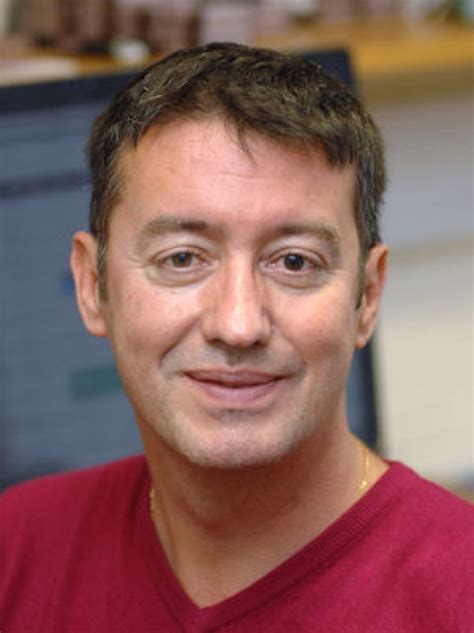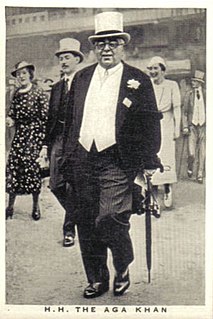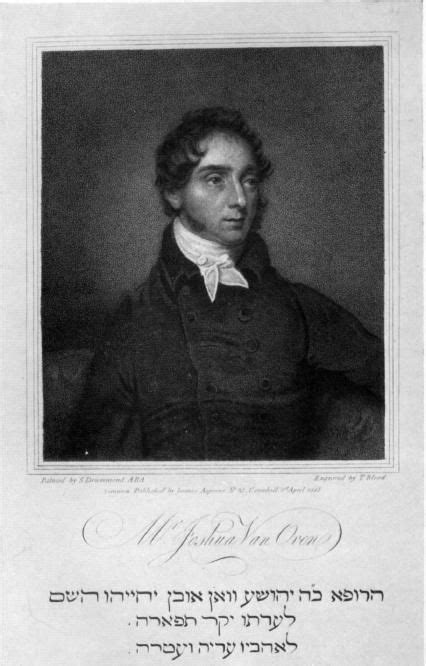A Quote by Russell Stannard
A completed book exists in its entirety, although we humans read it in a time sequence from the beginning to the end. Just as an author does not write the first chapter, and then leave the others to write themselves, So God's creativity is not to seem as uniquely confined to, or even especially invested in, the event of the Big Bang. Rather his creativity has been seen as permeating equally all space and all time: his role as Creator and Sustainer merge.
Related Quotes
CREATIVITY is when you are not, because creativity is the fragrance of the creator. It is the presence of God in you. Creativity belongs to the creator, not to you. No man can ever be creative. Yes, man can compose, construct, but can never be a creator. When man disappears, when man becomes utterly absent, a new kind of presence enters his being - the presence of God. Then there is creativity. When God is inside you His light that starts falling around you is creativity. The climate that arises around you because of the presence of God within you is creativity.
One can imagine that God created the universe at literally any time in the past. On the other hand, if the universe is expanding, there may be physical reasons why there had to be a beginning. One could imagine that God created the universe at the instant of the big bang, or even afterwards in just such a way as to make it look as though there had been a big bang, but it would be meaningless to suppose that it was created before the big bang. An expanding universe does not preclude a creator, but it does place limits on when he might have carried out his job!
What I do usually is read the book first, for pleasure, to see if my brain starts connecting with it, as a movie. And then, if I say yes, I read it again, only this time I take a pen and, inside the book, I say, "Okay, this is a scene. I don't need this. I'm going to try this. I'm not going to take this." And then, I use that book like a bible and each chapter heading, I write a menu of what's in that chapter, in case I ever need to reference it. And then, I start to outline and write it. I get in there and it starts to evolve, based on having re-read it again.
Of course, Jastrow's comment is exaggerated at best; theologians hardly predicted the Big Bang. If our universe turns out to be closed, hence with an end, this does not mean apocalyptic visions of the end of the world were on target. And even if a beginning for the universe is a successful prediction of one version of theism, this is still not that impressive. After all, even a stopped clock is right twice a day. The Big Bang becomes strong support for God only with an argument showing that such a beginning requires a Creator.
So the first thing to be remembered: don't confine creativity to anything in particular. A man is creative - and if he is creative, whatsoever he does, even if he walks, you can see in his walking there is creativity. Even if he sits silently and does nothing, even non-doing will be a creative act. Buddha sitting under the Bodhi Tree doing nothing is the greatest creator the world has ever known.
There is a fundamental difference between the Jewish idea of creation and that of Islam. The creation according to Islam is not a unique act in a given time but a perpetual and constant event; and God supports and sustains all existence at every moment by His will and His thought. Outside His will, outside His thought, all is nothing, even the things which seem to us absolutely self-evident such as space and time. Allah alone wishes: the Universe exists; and all manifestations are as a witness of the Divine will.
Zen brings creativity. And remember, if you want to be one with the creator, you will have to learn some ways of creativity. The only way to be one with the creator is to be in some moment of creativity, when you are lost. The potter is lost in making his pottery; the potter is lost while working on the wheel. The painter is lost while painting. The dancer is lost; there is no dancer, only the dance remains. Those are the peak moments, where you touch God, where God touches you.
The preservation of the Jew was certainly not casual. He has endured through the power of a certain ideal, based on the recognition of a Higher Power in human affairs. Time after time in his history, moreover, he has been saved from disaster in a manner, which cannot be described excepting as 'providential.' The author has deliberately attempted to write this book in a secular spirit; he does not think that his readers can fail to see in it, on every page, a higher immanence
I write lyrics really fast. When it's time to write, I usually put them off until the very end and then when it's time to write I can just sit down: I sing the melody, whatever the melody is, because that's the first thing that's already been there for a long time; I start singing it and I start creating consonants and vowels; then they turn into words; then all of the sudden one sentence will happen; then that sentence will dictate how the rest of the sentences happen.






























